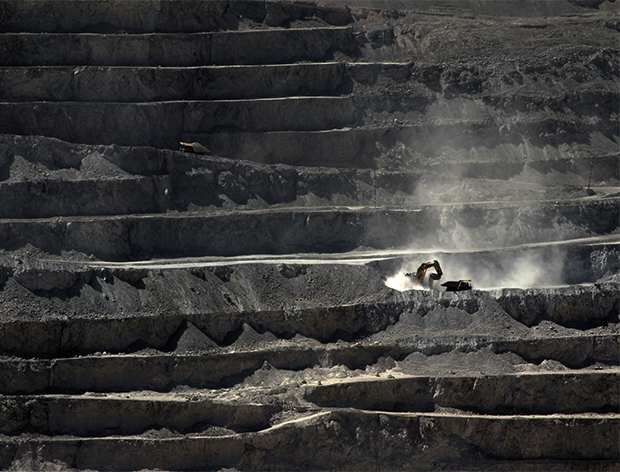A London court has ordered non-bank commodities financier Kimura to repay US$5mn to US asset manager Yieldpoint, finding that a debt sub-participation agreement struck between the two entitled the US firm to unconditional repayment even after the borrower defaulted.
Yieldpoint originally paid the Kimura Commodity Trade Finance Fund, a Cayman Islands entity, US$5mn in April 2021 to participate in a fully funded US$22.5mn pre-export facility Kimura had extended to borrower MTV, the operator of a copper mine in Chile.
MTV defaulted on its repayments to Kimura in late 2022 and was declared bankrupt by a Chilean court earlier this year.
The High Court found that the contracts agreed between London-headquartered Kimura and Yieldpoint meant that the US firm was unconditionally entitled to repayment when the deal matured at the end of March 2022, and that Kimura bore the full risk of MTV’s default. Kimura is planning to appeal the decision.
Stephen Houseman KC, sitting as a High Court judge, stressed in his May 22 judgement that he made his finding with “some discomfort” and that it involved a “significant degree of linguistic surgery”. Because of the “awkward interplay” between the contracts drawn up by the transatlantic pair, he wrote, “making sense of what they objectively agreed is not easy”.
Sub-participation agreements, in which a lender shares the risk and the rewards of a loan with another lender, have no “fixed concept” under English law or international financing practice, Houseman found, meaning the case must turn on the terms of the contracts agreed between the parties.
He found that various factors, chiefly the inclusion of a maturity date and renewal notice period in the contract, and a verbal promise by Kimura to repay the funds, were sufficient to establish that the agreement differed from a conventional scenario where the sub-participant would also share the default risk.
“I conclude, therefore, that Kimura had an unconditional obligation to repay the sum of US$5m to Yieldpoint on 31 March 2022,” Houseman found. “Kimura breached that obligation.”
A Kimura spokesperson tells GTR: “We believe there has been a misunderstanding of a risk participation agreement and dispute the judgement. We will comply with the court’s ruling in the interim but will be appealing.”
Yieldpoint, which describes itself as an asset management firm targeting short-duration credit opportunities in the commodities market, declined to comment on the judgement.
Mine failure
The relationship between the two firms began when they struck a master participation agreement in February 2021, the judgement shows. Shortly thereafter Kimura approached Yieldpoint with an offer for a 12-month fixed-term participation in its MTV loan, which itself was half of a US$45mn facility it provided alongside AAML, a subsidiary mining company of Anglo American.
The two negotiated a maturity date of March 31, 2022 and a clause allowing Yieldpoint to give 45 days’ notice of whether it would renew its participation beyond the maturity date.
Yieldpoint’s Nathaniel Polachek told Kimura in an email that the notice period amendment “will increase our likelihood of us extending as our own redemption period is quarterly w/45 days notice, so we will know for sure by then if we have any redemptions we need to satisfy and won’t need to automatically end earlier just to be safe”.
Between April and December 2021 Kimura paid just over US$332,000 to Yieldpoint in interest and price participation fees, according to a document filed in the case.
Kimura “took a 0.5% spread on the interest rate” which “represented a 6.66% uplift on the interest rate due under the MTV Participation”, according to the judgement. Houseman noted that with the MTV loan already fully funded prior to Yieldpoint’s involvement, Kimura’s actual use of the US$5mn was unknown.
But Kimura’s payments stopped in December after MTV ran into financial strife. The copper deposits at its mine were found to contain a lower grade of the metal which rendered the mine uneconomical.
MTV, which is majority-owned by publicly listed Canadian firm Three Valley Copper Corp, filed for voluntary liquidation in Chile in December last year after failing to find a buyer.
According to the judgement, Kimura argued that the transaction was a capital risk investment by Yieldpoint, which it said participated in equal terms in the financier’s share of the facility. It would make little commercial sense for Kimura to have shared the proceeds of the loan without offloading capital default risk, the firm pointed out.
Kimura formulated a “fair market value” mechanism to realise Yieldpoint’s contractual rights at the maturity date, the judgement says, but Houseman found that this was not supported by the contracts and conflicted with the inclusion of a maturity date.
“I suspect that each side’s key negotiators may have believed and intended something different when concluding this deal,” Houseman wrote in the judgement.
“If a professional lawyer had been involved in the process leading to agreeing specific terms based on the template offer, this potential mismatch in subjective expectations may have been flushed out at the time. That did not happen and nobody is to be criticised for how they chose to record this particular deal.”







